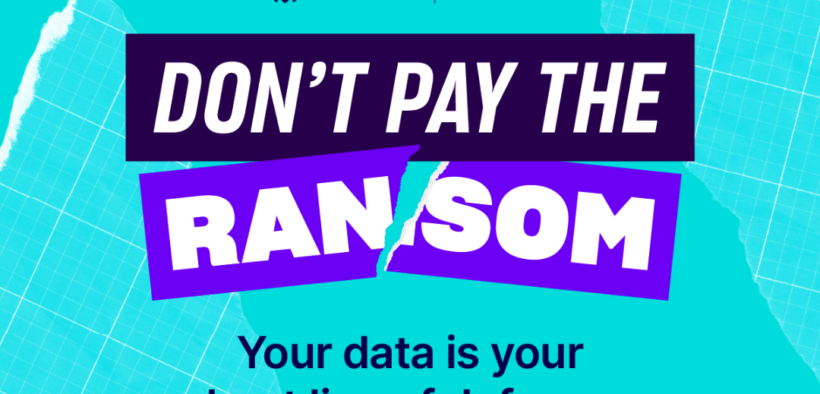Zeroing in on the government’s Zero Trust Strategy
Share

When the Federal Government released its updated Cyber Security Strategy late last year, it was a pivotal moment in the nation’s cybersecurity journey.
The strategy included several key measures to help protect Australian consumers and organisations. These ranged from greater support and guidance for local businesses to improve their cyber resilience, campaigns to attract skilled migrants in a bid to address the local talent shortage, and greater intelligence sharing with international partners to stay ahead of the latest attack campaigns.
While these are all important steps in safeguarding the nation, when it comes to improving the cyber resilience of the government itself, the most profound change was setting a target to have a “Zero Trust culture” embedded across the Australian public service by 2030.
This strategy follows that of the U.S., which, in 2021, initiated a government-wide effort to implement baseline security practices and migrate the Federal Government towards a Zero Trust architecture. It was seen as so important to the administration that it was issued as an executive order from President Joe Biden himself.
So, what exactly is Zero Trust?
Zero Trust Architecture is an approach to cybersecurity built on one fundamental principle: despite best efforts, data breaches are inevitable (if they haven’t already occurred).
With that in mind, the Zero Trust security model eliminates any implicit trust within a network and allows approved users access to only the bare minimum they need to perform their jobs.
In doing so, the impact of any stolen device or compromised user credential is severely limited, as an attacker would only be able to gain access to a small, contained element of the network.
To put it another way, think about your family’s home. Let’s say you’ve locked your gate. If a thief jumped over your fence, would the door to your home be open? Would your most important documents and valuables lie in plain sight?
Prior to Zero Trust Architecture, the approach to cybersecurity was to lock the gate and leave everything inside the perimeter easily accessible. This new approach secures not only the gate but also the front door and windows, ensuring the safekeeping of the most sensitive and valuable assets.
This mitigates the impacts of any breach. Breaches will still occur, but the damage will be a minor inconvenience rather than a catastrophic event.
The timing of the government’s shift towards limiting access to malicious intruders is critical, particularly considering an evolution in the cyber attacker’s playbook.
In recent years, there has been a marked increase in attackers targeting backup data in their campaigns.
This trend is particularly pronounced in ransomware attacks, as backups of critical data allow the victim to recover their operations from a point in time before the attack—without having to pay a ransom.
Unfortunately, data from recent Rubik research found that of the Australian organisations that experienced a cyberattack in 2022, 98% saw the malicious actors attempt to compromise their backup data. In 87% of cases, they were at least partially successful.
Zero Trust Architecture helps to protect this critical last line of defence because there is rarely a reason for anyone, beyond a minimal subset of users, to have account privileges that allow access to backup data.
So, while a zero-trust architecture protects many parts of an organisation, the role it plays in keeping backup data secure is perhaps the most important.
In fact, data backups are so fundamental to cyber resilience that they’re the only measure in the Australian Signals Directorate’s Essential Eight to address recovery. The other seven measures, while important, all relate to prevention before the fact rather than recovery after an attack.
With all this in mind, the government’s 2030 commitment to adopt a zero-trust approach is a step in the right direction. That said, cyber resilience needs to be at the top of the agenda, made a priority, and any bureaucracy moved to make it happen as soon as possible.
Findings from Rubrik’s latest Zero Labs Report suggest the Federal Government’s shift towards Zero Trust can’t happen soon enough. The vast majority (88%) of Australian IT and security leaders believe their organisation’s current data growth is outpacing their ability to secure this data and manage risk. Their data growth is significantly higher than the global average of 66%.
As more critical public-facing government services move to digital platforms, ensuring personal data security—and the platforms’ resilience—has never been more critical.
Succeeding in these aims requires a shift in mindset that accepts breaches as inevitable. Most critically, however, this has to be achieved as soon as possible because attackers won’t be just sitting around waiting for 2030.
Antoine Le Tard
Antoine Le Tard, Vice President APAC, is a seasoned management professional renowned for fostering dedicated teams and robust customer relationships. With a passion for customer service and teamwork, he implements best practices across diverse teams, driving organizational success. With a philosophy grounded in authenticity and open communication, he excels in fast-paced environments, prioritizing customer satisfaction and stakeholder relations while fostering high-performance cultures. His leadership, honed through enterprise experience and leadership programs, ensures effective sales management and execution.











Today’s Pick
11th Annual Aus Goverment Data Summit
April 1, 2025
7th Annual NZ Government Data Summit
May 7, 2025
3rd Public Sector Comms Week
May 14, 2025
Subscribe
We send emails,
but we do not spam
Join our mailing list to be on the front lines of healthcare , get exclusive content, and promos.
AI appointment Australia Australian boost boosts business businesses covid-19 cyber cyber attack cybersecurity cyber security data data breach data management defence Digital employment enhance enhances fraud funding governance government grants infrastructure Innovation Lockdown management new zealand NSW NZ online privacy public Public Sector queensland renewable energy scams security Social Media Technology telecommunications victoria
-

Understanding and building your digital strategy
Digital Government, Opinion
-

Featured Leader: Jamie Morse on multi-channel strategies for communication
Communications, Featured Leader
-

Featured Leader: Tegan Tembe of NSW Treasury on creating solid planning strategies and processes
Featured Leader
-

Wirraka Maya Health Service improves patient care with My Health Record
Learning
Show More-

Effects of ineffective communication in the workplace
Communications, Personal Development
-

7 ways you can enhance your personal development skills
News, Personal Development
-

5 advantages of working in the public sector
News, Personal Development, Professional Development
-

7 causes of communication issues in the workplace
Communications, News, Personal Development
Show MoreLast Viewed